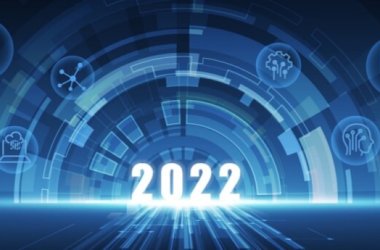
Our research partners at The Institute for the Future (IFTF) recently forecasted that we’re entering the next era of human-machine partnership, and that between now and 2030 humans and machines will work in closer concert with each other, transforming our lives. We’ve worked with machines for centuries, but we’re about to enter an entirely new phase – characterised by even greater efficiency, unity and possibility than ever before. Given this dizzying pace of progress, let’s take a look at what’s coming next.
Prediction 1: AI will do the ‘thinking tasks’ at speed
Over the next few years, AI will change the way we spend our time acting on data, not just curating it. Businesses will harness AI to do data-driven “thinking tasks” for them, significantly reducing the time they spend scoping, debating, scenario planning and testing every new innovation. It will mercifully release bottlenecks and liberate people to make more decisions and move faster, in the knowledge that great new ideas won’t get stuck in the mire.
Prediction 2: Embedding the IQ of Things
Starting in 2018, we’ll take gargantuan strides in embedding near-instant intelligence in IoT-enhanced cities, organisations, homes, and vehicles. We’ll evolve into ‘digital conductors’ of the technology and environments surrounding us. Technology will function as an extension of ourselves. Every object will become smart and enable us to live smarter lives. We’re seeing this in our cars – the “ultimate mobile device” – which are being fitted out with ultrasonic sensors, technology that makes use of light beams to measure distance between vehicles and gesture recognition. In time, these innovations will make autonomous driving an everyday reality.
Prediction 3: We’ll don AR headsets
It also won’t be long until the lines between ‘real’ reality and augmented reality begin to blur. AR’s commercial viability is already evident. For instance, teams of construction workers, architects and engineers are using AR headsets to visualise new builds, coordinate efforts based on a single view of a development and train on-the-job laborers when a technician can’t be on site that day.
Prediction 4: A deeper relationship with customers
Over the next year, with predictive analytics, machine learning and AI at the forefront, companies will better understand and serve customers at, if not before the point of need. Customer service will pivot on perfecting the blend between man and machine. So, rather than offloading customer interactions to first generation chatbots and predetermined messages, humans and automated intelligent virtual agents will work together as one team.
Prediction 5: Bias check will become the next spell check
We’ll see AI applied to hiring and promotion procedures to screen for conscious and unconscious bias. Meanwhile VR will increasingly be used as an interview tool to ensure opportunities are awarded on merit alone, e.g. by masking a prospective employee’s true identity with an avatar. By using emerging technologies to these ends, ‘bias check’ could one day become a routine sanitiser, like ‘spell check’- but with society-wide benefits.
Prediction 6: Media & Entertainment will break new ground with esports
In 2018, we’ll see increasingly vast numbers of players sitting behind screens or wearing VR headsets to battle it out in a high-definition computer-generated universe. As hundreds of millions of players and viewers tune-in, esports will go mainstream.
Prediction 7: We’ll journey toward the “mega-cloud”
We’ll see the emergence of the “mega cloud”, which will weave together multiple private and public clouds to behave as a coherent, holistic system. The mega cloud will offer a federated, intelligent view of an entire IT environment.
Prediction 8: The year to sweat the small stuff
Organisations aren’t simple atomic instances; rather, they are highly interconnected systems that exist as part of something even bigger. The ripples of chaos spread farther and faster now that technology connects us in astonishing ways. Hence, next year will be a year of action for multinational corporations, further inspired by the onslaught of new regulations such as GDPR. Prioritising the implementation of cybersecurity tools and technologies to effectively protect data and prevent threats will be a growing imperative.





